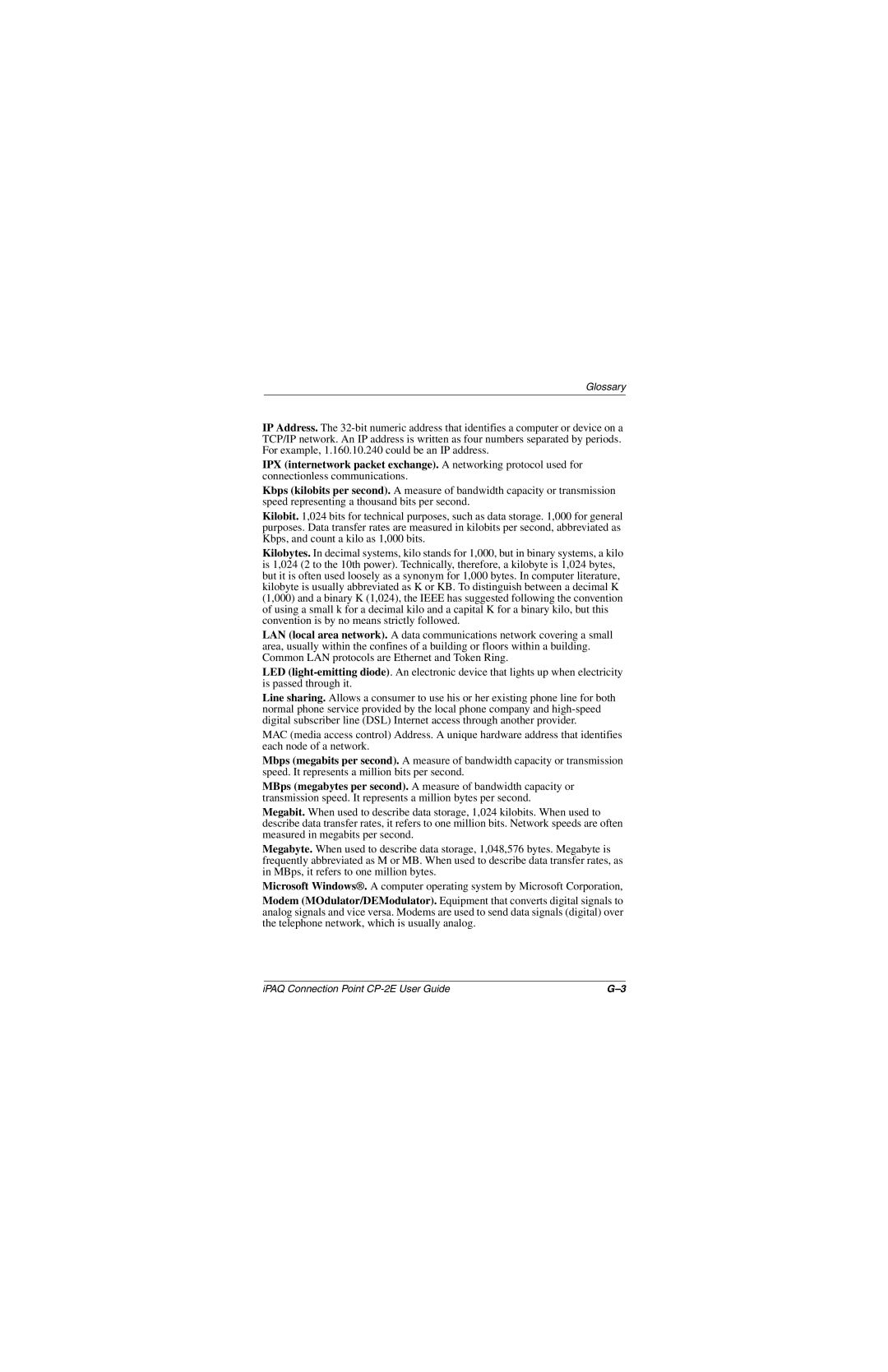
Glossary
IP Address. The
IPX (internetwork packet exchange). A networking protocol used for connectionless communications.
Kbps (kilobits per second). A measure of bandwidth capacity or transmission speed representing a thousand bits per second.
Kilobit. 1,024 bits for technical purposes, such as data storage. 1,000 for general purposes. Data transfer rates are measured in kilobits per second, abbreviated as Kbps, and count a kilo as 1,000 bits.
Kilobytes. In decimal systems, kilo stands for 1,000, but in binary systems, a kilo is 1,024 (2 to the 10th power). Technically, therefore, a kilobyte is 1,024 bytes, but it is often used loosely as a synonym for 1,000 bytes. In computer literature, kilobyte is usually abbreviated as K or KB. To distinguish between a decimal K (1,000) and a binary K (1,024), the IEEE has suggested following the convention of using a small k for a decimal kilo and a capital K for a binary kilo, but this convention is by no means strictly followed.
LAN (local area network). A data communications network covering a small area, usually within the confines of a building or floors within a building. Common LAN protocols are Ethernet and Token Ring.
LED
Line sharing. Allows a consumer to use his or her existing phone line for both normal phone service provided by the local phone company and
MAC (media access control) Address. A unique hardware address that identifies each node of a network.
Mbps (megabits per second). A measure of bandwidth capacity or transmission speed. It represents a million bits per second.
MBps (megabytes per second). A measure of bandwidth capacity or transmission speed. It represents a million bytes per second.
Megabit. When used to describe data storage, 1,024 kilobits. When used to describe data transfer rates, it refers to one million bits. Network speeds are often measured in megabits per second.
Megabyte. When used to describe data storage, 1,048,576 bytes. Megabyte is frequently abbreviated as M or MB. When used to describe data transfer rates, as in MBps, it refers to one million bytes.
Microsoft Windows®. A computer operating system by Microsoft Corporation,
Modem (MOdulator/DEModulator). Equipment that converts digital signals to analog signals and vice versa. Modems are used to send data signals (digital) over the telephone network, which is usually analog.
iPAQ Connection Point |
